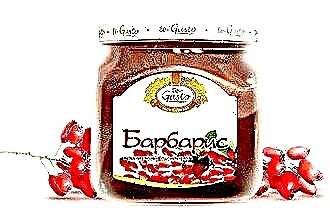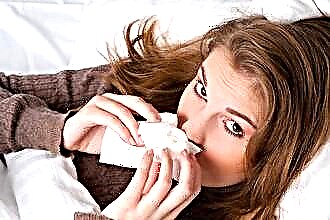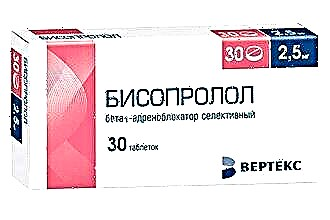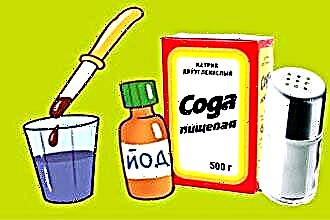Honey is one of the main products used in apitherapy (medotherapy) for the treatment of diseases of the cardiovascular, nervous, respiratory and endocrine systems. The product contains almost all trace elements that are present in the composition of human blood. The systematic use of honey helps to increase the reactivity of the body and the destruction of pathogenic viruses and bacteria.
 Treatment of angina with honey will be effective only as part of the passage of drug therapy. Despite the pronounced therapeutic properties of beekeeping products, they do not contribute to the destruction of pathogens. Untimely elimination of foci of inflammation in the pharyngeal mucosa and lymphadenoid formations can cause serious complications.
Treatment of angina with honey will be effective only as part of the passage of drug therapy. Despite the pronounced therapeutic properties of beekeeping products, they do not contribute to the destruction of pathogens. Untimely elimination of foci of inflammation in the pharyngeal mucosa and lymphadenoid formations can cause serious complications.
Biochemical composition
Is it possible to eat honey for acute tonsillitis? The product has an antiphlogistic and immunostimulating effect due to the presence of organic acids, vitamins and microelements in its composition. The main ones include:
- fructose;
- glucose;
- carotene;
- riboflavin;
- pyridoxine;
- folacin;
- provitamin A;
- ascorbic acid;
- pantothenic acid;
- zinc;
- calcium;
- sodium;
- iron;
- magnesium.
According to some adherents of apitherapy, honey should not be consumed in the first days of angina development, which is due to the risk of irritation of the already inflamed oropharyngeal mucosa. It should be noted that the non-sugar product does not adversely affect the tonsils and ciliated epithelium lining the pharynx. In other words, there is practically no risk of mucosal irritation when consuming bee products.
Pharmacological properties
Does apitherapy help to eliminate the clinical manifestations of tonsillitis? Beekeeping products contain useful substances that have a beneficial effect on metabolism and many biochemical processes in tissues. Competent use of the product contributes to an increase in the body's resistance and, accordingly, recovery.
What are the properties of a beekeeping product?
- accelerates metabolic processes;
- reduces pain in the throat;
- accelerates the healing process of tissues;
- increases local immunity;
- destroys viruses and bacteria;
- accelerates the regression of inflammation.
The product has an enveloping effect, therefore, after using it, patients feel relief from the local symptoms of sore throat. It contains methylglyoxal, which has a detrimental effect on the development of bacterial pathogens, in particular beta-hemolytic streptococci and saprophytes. Regular consumption of the product helps to accelerate cellular metabolism, thereby accelerating the epithelialization of the mucous membrane in the oropharynx.
Contraindications
Beekeeping products are capable of provoking allergic reactions, so they can be consumed only in the absence of diathesis and a tendency to allergies. Due to the sensitization of the body, it is undesirable to resort to apitherapy when treating children under one year old, as well as for people suffering from diabetes. The composition of honey contains a considerable amount of glucose and sugars, which can provoke a deterioration in well-being.
If urticaria, vesicular rash and hyperemia occur, it is necessary to refuse oral use of honey.
Do not use the product hot, due to the risk of burns. To eliminate the clinical manifestations of acute tonsillitis, it is advisable to dilute the beekeeping product in weak tea, milk or boiled water. Thus, you can stop pain in the throat, as well as accelerate the regression of catarrhal processes.
Milk with honey
Milk with honey for angina is an effective symptomatic remedy that allows you to eliminate local manifestations of tonsillitis. A warm drink is recommended to be consumed when the first symptoms of pathology occur. In view of the antimicrobial, antiviral and sedative effects, milk should be consumed 10-15 minutes before bedtime.
Important! Boiling milk leads to the destruction of most of the nutrients in its composition.
To prepare a health drink, you can use the following recipe:
- heat milk to 55-60 degrees;
- dissolve 1 tsp. honey;
- add 1/3 teaspoon of cinnamon to the drink.
The daily procedure helps to strengthen the immune system and accelerate tissue regeneration. To prolong the therapeutic effect of the drink, try not to drink milk with water.
Medicinal decoction
Honey for sore throat in combination with a decoction of walnut shells is one of the most effective means of apitherapy in the treatment of ENT diseases. The medicinal drink has an immunostimulating, wound healing and analgesic action, which allows you to eliminate many of the symptoms of pathology during the period of exacerbation of catarrhal processes.
wound healing and analgesic action, which allows you to eliminate many of the symptoms of pathology during the period of exacerbation of catarrhal processes.
To prepare a drink, you should:
- 2 tbsp. pour dried walnut partitions with 250 ml of water;
- boil the broth for 10 minutes over low heat;
- suck and strain the liquid with gauze;
- before use, add 1 tsp of honey to the broth.
Drinks should be warm, but not hot (the optimal temperature will be 45-50 degrees). To achieve the desired therapeutic effect, you need to drink at least 3 glasses of broth per day 30 minutes before meals.
Apitherapy methods
How can honey be used medicinally for tonsillitis? Rich in vitamins and microelements, the product helps to eliminate most local manifestations of pathology. To eliminate inflammation in the lymphadenoid formations, you can use the following drug recipes:
- gargle: dissolve 2 tbsp in 250 ml of boiled water. product; gargle at least 4 times a day for 10-15 minutes;
- inhalation: dissolve 2 hours of the product in ½ l of a decoction of medicinal chamomile, fir and St. John's wort; make steam inhalations for 4-7 minutes up to 3 times a day;
- compress: mix 1 part honey with 3 parts diluted alcohol (50%) and 1 part aloe juice; in the prepared solution, moisten gauze and apply to the throat for 30-40 minutes, warming the compress with a scarf.
Important! A warming compress and steam inhalation can be used only in the absence of purulent processes in the tonsils.
Varieties of honey
What honey for angina will be the most effective? The therapeutic properties of the product are determined by the quality of the nectar extracted by honey bees from various plants. According to beekeepers, only the following types of honey can be eaten for medicinal purposes:
- buckwheat - increases the amount of iron in the blood, therefore it is used for anemia;
 chestnut - has a beneficial effect on the mucous membrane of the digestive tract and on the work of the detoxification organs;
chestnut - has a beneficial effect on the mucous membrane of the digestive tract and on the work of the detoxification organs;- barberry - has a pronounced antiseptic and decongestant effect; using barberry honey for angina, you can eliminate purulent foci of inflammation in the tubal and palatine tonsils;
- sweet clover - has an expectorant, antibacterial, analgesic and anti-inflammatory effect; used to treat angina, bronchitis, atherosclerosis, etc.;
- acacia - destroys pathogenic microbes and viruses, improves local immunity; used in the treatment of colds.
Important! Without harm to health, an adult can eat no more than 150 g of honey per day.

 chestnut - has a beneficial effect on the mucous membrane of the digestive tract and on the work of the detoxification organs;
chestnut - has a beneficial effect on the mucous membrane of the digestive tract and on the work of the detoxification organs;

